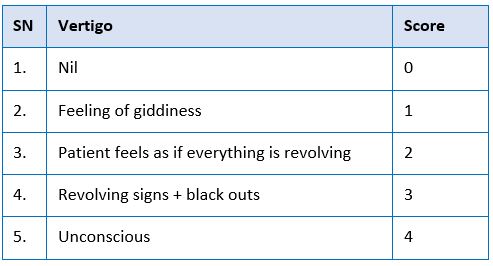Clinical insights and Ayurvedic management for Hemiplegic Migraine w.s.r. to Ardhavabhedaka - A Case Report
DOI:
https://doi.org/10.21760/jaims.9.7.54Keywords:
Hemiplegic Migraine, Ardhavbhedaka, Ayurveda, ManagementAbstract
Hemiplegic migraine, known as Ardhavbhedaka in Ayurveda, presents a unique challenge in its management due to its complex etiopathogenesis involving both Vata and Pitta Doshas along with Kapha Dosha. Hemiplegic migraine can be familial, meaning it runs in families, or sporadic, occurring in individuals without a family history.[1] Patients may rarely have a bilateral motor weakness either simultaneously or in succession.[2] This study explores the Ayurvedic approach to managing Ardhavbhedaka through a comprehensive review of classical texts, contemporary literature, and clinical experiences. The treatment protocol emphasizes personalized care, including Shamana (palliative) therapies to pacify aggravated Doshas, Srotosodhana (channel purification) procedures to remove underlying causative factors, and Rasayana therapies to strengthen the body's natural healing mechanisms. Ayurvedic management aims not only to alleviate acute symptoms but also to prevent recurrence and improve overall quality of life. This abstract highlight the efficacy and holistic nature of Ayurveda in addressing Hemiplegic migraine, offering insights for further research and integrative clinical applications.
Downloads
References
Ducros A. [Familial and sporadic hemiplegic migraine]. Rev Neurol (Paris). 2008 Mar;164(3):216-24.
Ducros A, Denier C, Joutel A, Cecillon M, Lescoat C, Vahedi K, Darcel F, Vicaut E, Bousser MG, Tournier-Lasserve E. The clinical spectrum of familial hemiplegic migraine associated with mutations in a neuronal calcium channel. N Engl J Med. 2001 Jul 05;345(1):17-24.
Russell MB, Ducros A. Sporadic and familial hemiplegic migraine: pathophysiological mechanisms, clinical characteristics, diagnosis, and management. Lancet Neurol. 2011 May;10(5):457-70.
Hansen JM, Hauge AW, Ashina M, Olesen J. Trigger factors for familial hemiplegic migraine. Cephalalgia. 2011 Sep;31(12):1274-81.
Thomsen LL, Eriksen MK, Roemer SF, Andersen I, Olesen J, Russell MB. A population-based study of familial hemiplegic migraine suggests revised diagnostic criteria. Brain. 2002 Jun;125(Pt 6):1379-91.
Shastri KA. Shirorogavigyaniyaadhyaya 25/15. In: Sushruta Samhita of Maharshi Sushruta. Varanasi: Chaukhambha Sanskrit Sansthan; 2012. P. 166.
Shastri SN. Trimarmiyasiddhi 9/75-76. In: Charak Samhita of Agnivesha. Varanasi: Chaukhambha Bharti Academy; 2018. P. 1067
Tripathi B. 23/7. In: Ashtanga Hridyayam of Srimadavaghbhata. Varanasi: Chaukhambha Sanskrit Pratishtana; 2003. P. 726.
Toldo I, Brunello F, Morao V, et al. First attack and clinical presentation of hemiplegic migraine in paediatric age: a multicenter retrospective study and literature review. Front Neurol 2019;10:1079.
Thomsen LL, Ostergaard E, Olesen J, et al. Evidence for a separate type of migraine with aura: sporadic hemiplegic migraine. Neurology 2003;60:595–601.
Kumar Tarun, Thakur Anup, Kottamchukkadi Taila: A Theoritical Analysis, WJPR, Vol 7, Issue 9, 2018
Neetu Sharma, Nidhi soni, Vijay Jatolia. Successful Ayurveda Management of Trigeminal Neuralgia. AYUSHDHARA, 2024;11(1):36-39.
Namita Patel A Comparative Clinical Study to Evaluate the Effect of Dashmool Kwath Nadi Sweda and Local Steam Bath in Sandhi – Gata-Vata. International Ayurvedic Medical Journal {online} 2022
Sushrut samhita, Chaukhamba Sanskrit Sansthana, Edition: Reprint, volume 1. Chaukhamba Publication Hindi commentary Sharira sthana, 2014; 5/28: 61.
Shushrut samhita Dalhana comm. Ayurved Tatva Sandipika, edited K. S. Shastri. Sharir Sthana 5/28 Page 56. Varansi; Chaukhamba Surbharati Prakashana.
Shushrut samhita, Chaukhamba Sanskrit Sansthana, Edition: Reprint, volume 1. Chaukhamba Publication Hindi commentary Sharira sthana, 2014; 6/17: 70.
Kavita Bapu Kharat, Varsharani Niphade, Amol Gulve, A case study on the Ayurvedic management of Ankylosing Spondylitis, WJPR, Vol 11, Issue 7, 2022.















